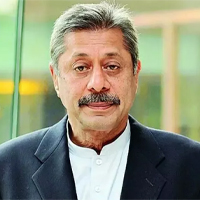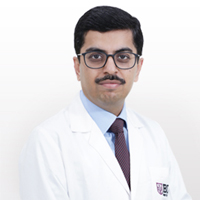Lung Transplant IN INDIA
India is a hub for various transplants. We promise to provide the best around the globe. As one of the most complex and advanced medical procedures, it offers hope to individuals who have exhausted other treatment options. With advancements in medical science, lung transplants have become more accessible, particularly in countries like India, where the success rate continues to improve. In this blog, we’ll discuss the different types of lung transplants, the cost involved, and the chronic conditions that lead to the need for this procedure.
When do I need a lung transplant?
Lung transplants are considered for individuals whose medications and medical therapies fail to provide effective results. It becomes essential for patients with untreatable end-stage pulmonary diseases and a limited life expectancy to undergo this procedure. A successful lung transplant, especially in cities like Delhi, can significantly improve the quality of life and increase longevity.
Conditions That May Require a Lung Transplant:
- Chronic Obstructive Pulmonary Disease (COPD)
- Idiopathic Pulmonary Fibrosis (IPF)
- Non-Specific Interstitial Pneumonia
- Sarcoidosis
- Heart Diseases or Defects Affecting Lungs
- Pulmonary Hypertension
- Cystic Fibrosis and Bronchiectasis
- Chronic Lung Diseases
These conditions often lead to severe respiratory failure, making lung transplantation a viable and life-saving option
What are the various types of lung transplants?
Lung transplants in India are categorized based on the extent of replacement and the type of donor organ used. The main types include:
- Single-Lung Transplant:
- Only one lung is replaced, typically for conditions like idiopathic pulmonary fibrosis or chronic obstructive pulmonary disease (COPD) affecting one lung.
- Double-Lung Transplant:
- Both lungs are replaced. This is common for patients with severe infections, such as cystic fibrosis or bronchiectasis, or diseases like pulmonary hypertension.
- Heart-Lung Transplant:
- In rare cases where both the lungs and heart are severely damaged, a combined heart-lung transplant is performed.
- Lobar Transplant:
- Instead of whole lungs, specific lobes (sections) of a lung from living donors or cadavers are transplanted. This is less common but suitable for certain conditions and smaller patients.
Complete Removal of Lungs vs. Partial Transplantation
- Complete Removal of Lungs:
- In single or double-lung transplants, the diseased lungs are entirely removed and replaced with healthy donor lungs. This is a standard approach for end-stage lung diseases.
- Partial Transplantation (Lobes):
- When only parts of the lung, such as lobes, are transplanted, it is often done for patients who cannot undergo a full lung transplant due to medical or anatomical constraints. This option is less invasive but requires careful donor-recipient matching.
Each type of transplant is chosen based on the patient’s condition, severity of the disease, and overall health, ensuring the most suitable and effective treatment approach.
What are the factors that influence the cost of lung transplant in India?
A lung transplant is a complex procedure with costs influenced by several factors:
- Type of Transplant
The cost varies depending on whether it is a single-lung, double-lung, or heart-lung transplant. Double or heart-lung transplants are more expensive due to their complexity and extended surgery time. - Organ Recovery
Expenses include the logistics of retrieving donor lungs, organ preservation, and transportation, which can significantly increase costs. - Hospital Infrastructure and Technology
Advanced facilities, state-of-the-art surgical equipment, and high-level critical care infrastructure raise the overall expenditure. - Doctor and Surgeon Fees
Fees for skilled transplant surgeons, anesthesiologists, and medical teams are significant contributors. - Stay in Hospital
Prolonged hospital stays in intensive care or transplant recovery units add to the financial burden. - Health Complications
Pre-existing conditions or post-transplant complications such as infections or organ rejection may increase treatment costs. - Recovery and Rehabilitation
Physical therapy, follow-ups, and pulmonary rehabilitation programs are necessary and impact overall expenses. - Post-Transplant Medications
Lifelong immunosuppressive drugs to prevent organ rejection form a considerable part of the recurring costs.
Each of these elements contributes to the high cost of lung transplants, underscoring the need for meticulous financial planning.
What is the cost of lung transplant in India?
In India, the cost of a lung transplant typically averages around ₹26,00,000. The starting price is approximately ₹22,50,000, while the cost can rise to as much as ₹36,00,000, depending on various factors.
Why is India best for lung transplant?
India is a popular destination for lung transplants due to its combination of advanced medical infrastructure and affordability. Key reasons include:
- Wide Network of Hospitals:
- India offers a diverse range of healthcare facilities, from world-class institutions equipped with cutting-edge technology to mid-range hospitals providing quality care at reasonable prices.
- Specialized Treatment:
- Hospitals in metropolitan cities, including Delhi, are renowned for offering affordable yet high-quality lung transplant procedures. These hospitals have experienced surgeons, advanced technology, and excellent post-operative care facilities.
- Cost Variability:
- The cost of a lung transplant in India depends on several factors, including:
- The hospital chosen, whether a premium facility or a mid-tier option.
- The surgeon’s expertise and experience.
- The infrastructure and availability of advanced equipment.
- The city, as treatment expenses may vary across locations.
- The cost of a lung transplant in India depends on several factors, including:
- Affordability:
- Compared to many other countries, lung transplant costs in India are significantly lower, making it an attractive option for domestic and international patients.
By offering a blend of affordability, expertise, and advanced medical facilities, India has become a preferred destination for lung transplants, providing patients with life-saving treatments and improved quality of life.
Why choose us?
Experience the benefits of world-class healthcare in India with our comprehensive medical tourism services. Designed to support international patients at every step, we ensure a smooth and stress-free healthcare journey. From visa assistance and travel planning to selecting the best doctors, hospitals, and treatment plans, we handle it all. Our focus is on providing cost-effective solutions without compromising on quality, tailoring our services to meet your medical and financial needs. With our expert team managing the logistics, you can focus solely on your health and recovery while we ensure your journey is efficient, comfortable, and worry-free.
What are the pre evaluations done before lung transplant?
Before proceeding with a lung transplant, a thorough evaluation is conducted to assess the patient’s suitability and minimize risks. Key pre-evaluation tests include:
- Pulmonary Function Tests (PFTs):
Measures lung capacity and airflow to understand the severity of lung disease. - Blood Tests:
Check for organ function, infections, and overall health. - Chest X-rays and CT Scans:
Provide detailed imaging of the lungs to assess structural damage or abnormalities. - Echocardiogram:
Evaluates heart function to ensure the patient can tolerate the surgery. - Arterial Blood Gas (ABG) Analysis:
Measures oxygen and carbon dioxide levels in the blood. - Cardiac Stress Tests:
Examine heart performance during physical activity or stress. - Bone Density Tests:
Check for osteoporosis, which may complicate post-surgical recovery. - Psychological Evaluation:
Assesses the mental and emotional readiness of the patient for the transplant process. - Infectious Disease Screening:
Identifies any infections that might impact the success of the surgery or recovery.
By performing these tests, medical teams can ensure that the patient is well-prepared for the transplant and has the best possible outcome.
How to take care of a patient post lung transplantation?
Post care is crucial for the patient, it is often a multidisciplinary approach. This includes regular follow ups, talk to your dietitian and visit your physician often. Here is a list of certain things after a transplant.
- Hospital Stay and Monitoring:
- Stay for 2-3 weeks with regular monitoring for complications like infection or rejection.
- Medications:
- Take immunosuppressants and infection-preventing drugs as prescribed for life.
- Infection Prevention:
- Maintain hygiene, avoid crowds, and wear masks during recovery.
- Physical Therapy:
- Engage in pulmonary rehabilitation and light exercise to regain strength.
- Diet and Nutrition:
- Eat a balanced diet, limit salt, and avoid foods that may interact with medications.
- Regular Follow-Ups:
- Attend all appointments for lung function tests and adjustments to medications.
- Lifestyle Adjustments:
- Quit smoking, avoid pollutants, and maintain a healthy weight.
- Emotional Support:
- Seek counseling or join support groups for mental well-being.
- Warning Signs:
- Report symptoms like fever, shortness of breath, or chest pain immediately.
Adhering to these steps ensures a smooth recovery and long-term success.
Top Lung Transplant Doctors in India
The right doctor to consult for a Lung Transplant case.
Dr.Naresh Trehan
Year of experience: 40 years of experience
Dr. Abhideep Chaudhary
Year of experience: 24+ Years of Experience
Dr. Sandeep Attawar
Year of experience: 22 years of experience
Dr. Rahul Bhargava
Year of experience: 23+ Years of Experience
Senior Consultant at Fortis Memorial Research Institute, Gurgaon
Dr. Dinesh Khullar
Year of experience: 37
Consultant at Max Super Speciality Hospital, Saket, Delhi
Dr. Rahul Naithani
Year of experience: 6 Year of Experience
Dr. Vikas Dua
Year of experience: 22
Consultant at Fortis Memorial Research Institute, Gurgaon
Dr. Vivek Vij
Year of experience: 20
Senior Consultant at Fortis Escorts Heart Institute, Delhi
Looking For The Best Doctor & Hospital?
Fill up the form and get assured assitance within 24 hrs!
What is the success rate of lung transplant in India?
Choosing the right hospital and doctor for a lung transplant significantly impacts the outcome. A successful transplant can extend a person’s life by 5 to 10 years or more. After the procedure, patients often experience:
- Improved breathing with reduced shortness of breath.
- Fewer lifestyle restrictions, allowing greater freedom.
- Higher energy levels, enabling them to engage in daily activities with ease.
- Enhanced quality of life, marked by better physical and emotional well-being.
- Longer life expectancy, offering more time to enjoy a fulfilling life.
Selecting experienced medical professionals and advanced facilities is crucial for achieving these benefits.
Advancements in medical science in India have significantly improved the success rate and life expectancy of lung transplant patients. The success rate for lung transplants in India is approximately 87%. The cost of the procedure varies depending on factors such as the hospital, type of surgery, organ recovery charges, duration of hospital stay, and any additional health complications.
FAQs
How long does recovery take after a lung transplant?
Recovery varies but typically involves several months of close monitoring, physical rehabilitation, and adherence to a strict regimen of medications to prevent rejection and infection. Regular follow-ups are crucial.
What lifestyle changes are necessary after a lung transplant?
Patients need to take immunosuppressive medications lifelong, maintain a healthy diet, avoid smoking, limit alcohol, stay active, and avoid exposure to infections. Emotional and psychological support can also be essential for long-term adjustments,.
How successful are lung transplants, and what is the life expectancy after the procedure?
Success rates depend on the patient’s condition and care after the transplant:
About 85% of patients survive the first year.
Around 50-60% survive five years post-transplant. Advancements in medicine continue to improve these outcomes.
What are the main risks of a lung transplant?
The immune system may attack the transplanted lung, requiring immunosuppressive medication. Immunosuppressive drugs can weaken the immune system, increasing the risk of infections. Bleeding, blood clots, or other issues during or after the procedure. A long-term complication where the lung loses function gradually.
What are the factors of ineligiblity?
Active infections, recent cancer, severe organ dysfunction (e.g., liver or kidney failure), or ongoing smoking or substance abuse. Each case is assessed individually.
Get FREE Evaluation
Treatment plan and quote within within 24 hrs!
Let us help you
Get your personalized Estimate Now
Top Doctors & Surgeons in India
Best Hospitals in India
Best Treatments in India
Indian Medical Visa From
Copyright © 2025 Al Afiya Medi Tour | All Rights Reserved.

































